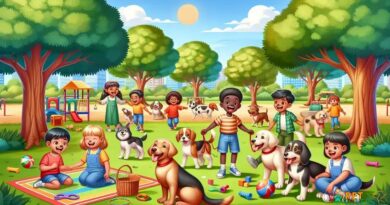What is Senior dogs
What is a Senior Dog?
A senior dog is typically defined as a dog that is considered to be in the later stages of its life, usually around the age of 7 years or older, depending on the breed. Larger breeds tend to age faster and may be classified as seniors at a younger age, while smaller breeds may remain youthful for longer. Understanding what constitutes a senior dog is essential for pet owners to provide the best care and support during this important life stage.
Signs of Aging in Dogs
As dogs age, they may exhibit various signs that indicate they are becoming seniors. Common signs include decreased energy levels, changes in appetite, weight gain or loss, and alterations in sleeping patterns. Additionally, senior dogs may experience mobility issues, such as stiffness or difficulty getting up after resting. Recognizing these signs early can help owners make necessary adjustments to their dog’s care routine.
Health Considerations for Senior Dogs
Senior dogs are more susceptible to certain health issues, including arthritis, dental disease, and organ dysfunction. Regular veterinary check-ups become increasingly important as dogs age, allowing for early detection and management of potential health problems. Vaccinations, parasite control, and dental care should also be prioritized to ensure the overall well-being of senior dogs.
Dietary Needs of Senior Dogs
The dietary needs of senior dogs often change as they age. Many senior dogs require a diet that is lower in calories but higher in fiber to maintain a healthy weight and support digestive health. Additionally, senior dog food often contains supplements such as glucosamine and omega fatty acids to promote joint health and cognitive function. Consulting with a veterinarian about the best diet for a senior dog is crucial for maintaining their health.
Exercise Requirements for Senior Dogs
While senior dogs may not have the same energy levels as their younger counterparts, regular exercise remains essential for their physical and mental health. Low-impact activities, such as short walks and gentle play sessions, can help keep senior dogs active without overexerting them. Tailoring exercise routines to accommodate their abilities can enhance their quality of life and prevent obesity.
Grooming Senior Dogs
Grooming is an important aspect of caring for senior dogs, as they may require more frequent grooming due to changes in their coat and skin. Regular brushing can help prevent matting and reduce shedding, while baths should be given as needed to keep their skin healthy. Additionally, paying attention to their nails, ears, and teeth is vital, as senior dogs may have difficulty maintaining their hygiene.
Emotional Well-being of Senior Dogs
Senior dogs may experience changes in their emotional well-being, including anxiety or depression, particularly if they have lost a companion or experienced significant changes in their environment. Providing a stable and loving home, along with mental stimulation through toys and interactive games, can help improve their emotional health. Socialization with other pets and people is also beneficial for their overall happiness.
Adopting a Senior Dog
Adopting a senior dog can be a rewarding experience, as these dogs often have a lot of love to give and are typically already trained. Many senior dogs find themselves in shelters due to unfortunate circumstances, and giving them a second chance at a loving home can be incredibly fulfilling. Potential adopters should consider the specific needs of senior dogs and be prepared for the responsibilities that come with caring for an older pet.
End-of-Life Care for Senior Dogs
As dogs reach the end of their lives, providing compassionate care becomes paramount. This may include pain management, comfort measures, and making decisions about euthanasia when necessary. Understanding the signs that indicate a decline in quality of life can help owners make informed choices about their senior dog’s care. Support from veterinarians and pet loss counselors can also be invaluable during this difficult time.



